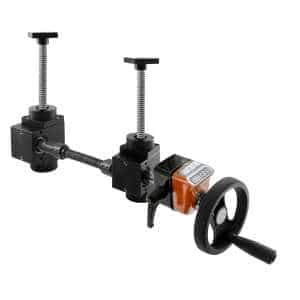
Ford Problems Uncovered: What Owners Should Know
When it comes to owning a Ford vehicle, there are a few common issues that owners should be aware of. From engine troubles to electrical system malfunctions, it’s important to know what to expect and how to properly maintain and repair your Ford.
One of the most common carproblems faced by Ford owners is engine troubles. This can include issues such as overheating, misfiring, and oil leaks. It’s important to regularly check your engine and address any problems as soon as they arise to prevent further damage.
Another area of concern for Ford owners is the electrical system. Faulty wiring, battery drain, and malfunctioning sensors are just a few of the electrical issues that can occur. Regular maintenance and inspections can help identify and resolve these problems before they become major headaches.
Transmission Ford problems are also a common issue for Ford owners. Slipping gears, rough shifting, and transmission failure can all occur. It’s important to address transmission problems promptly to avoid costly repairs down the line.
Brake system failures can also be a concern for Ford owners. Brake fluid leaks, premature wear, and faulty ABS systems are all issues that can affect the braking performance of your vehicle. Regular inspections and maintenance can help keep your brakes in top shape.
Suspension and steering defects are another area of concern. Excessive vibrations, steering wheel misalignment, and worn-out components can all affect the handling and safety of your Ford. Regular maintenance and inspections can help identify and address these issues.
In addition to these common problems, Ford vehicles have also been subject to safety recalls. Airbag defects, faulty seat belts, and potential fire hazards have all been issues that Ford has had to address. It’s important for owners to stay informed about any recalls and take the necessary steps to address them.
Overall, while Ford vehicles have their share of problems, proper maintenance and regular inspections can help prevent many of these issues. By staying proactive and addressing any problems as soon as they arise, Ford owners can ensure their vehicles stay in good working condition for years to come.
Engine Troubles
Engine Troubles
When it comes to engine troubles, Ford owners have reported a range of issues that can impact the performance and reliability of their vehicles. One common problem is overheating, which can occur due to a malfunctioning cooling system or a faulty thermostat. This can lead to engine damage and potential breakdowns if not addressed promptly.
Misfiring is another engine problem that Ford owners have encountered. This occurs when the engine cylinders fail to ignite properly, resulting in a rough running engine, decreased power, and poor fuel efficiency. It can be caused by issues such as faulty spark plugs, fuel injectors, or ignition coils.
Oil leaks are also a concern for Ford owners. These leaks can occur due to worn-out gaskets, seals, or oil pan damage. Not only can oil leaks lead to engine damage, but they can also pose a safety hazard if the leaking oil comes into contact with hot engine components.
To address these engine troubles, it is important for Ford owners to regularly maintain their vehicles and address any issues promptly. This includes regular oil changes, coolant checks, and inspections of the ignition system. By staying proactive and addressing engine problems early on, Ford owners can ensure the longevity and performance of their vehicles.
Electrical System Malfunctions
Electrical system malfunctions are a common concern among Ford vehicle owners. These issues can range from minor inconveniences to major safety hazards. Understanding the electrical problems that can arise in Ford vehicles is crucial for owners to ensure the proper functioning of their vehicles and to avoid potential accidents.
One of the most common electrical issues experienced by Ford vehicles is faulty wiring. This can lead to various problems, including intermittent power loss, malfunctioning lights, and even electrical fires. It is important for owners to regularly inspect their vehicle’s wiring and address any signs of wear or damage promptly.
Battery drain is another prevalent electrical problem faced by Ford owners. This can result in difficulties starting the vehicle or frequent battery replacements. Identifying the source of the battery drain, such as a malfunctioning component or a parasitic draw, is crucial for resolving this issue.
Malfunctioning sensors are also a common electrical problem in Ford vehicles. These sensors play a vital role in monitoring various systems, such as the engine, transmission, and braking. When sensors malfunction, it can lead to inaccurate readings and affect the overall performance and safety of the vehicle. Regular sensor inspections and prompt replacements are essential to prevent potential issues.
Overall, understanding the electrical system malfunctions that Ford vehicles can experience, such as faulty wiring, battery drain, and malfunctioning sensors, is crucial for owners to ensure the reliability and safety of their vehicles. Regular inspections, maintenance, and prompt repairs are key to addressing these issues and preventing further complications.
Transmission Problems
Transmission problems can be a major concern for Ford owners, as they can lead to costly repairs and even render the vehicle inoperable. One common issue reported by Ford owners is slipping gears, where the transmission fails to engage properly, resulting in a loss of power and acceleration. This can be a safety hazard, especially when trying to merge onto highways or navigate through traffic.
Another transmission-related challenge faced by Ford owners is rough shifting. This occurs when the gears shift abruptly or with a jolt, causing a jerky and uncomfortable driving experience. Not only does this affect the overall driving performance, but it can also potentially damage other components of the vehicle.
Transmission failure is perhaps the most severe problem that Ford owners may encounter. This can result in a complete breakdown of the transmission system, leaving the vehicle unable to move. The cost of repairing or replacing a failed transmission can be significant, making it crucial for Ford owners to be aware of this potential issue and take preventive measures.
Brake System Failures
Brake system failures can be a major concern for Ford owners, as they can compromise the safety and performance of the vehicle. One common issue reported by Ford owners is brake fluid leaks. These leaks can lead to a loss of braking power and require immediate attention to prevent accidents. Another problem faced by Ford owners is premature wear of the brake components. This can result in reduced braking efficiency and the need for frequent replacements, adding to the maintenance costs. Additionally, some Ford models have been reported to have faulty ABS systems, which can cause the brakes to malfunction and increase the risk of accidents.
Suspension and Steering Defects
Suspension and steering defects are common issues faced by Ford owners, which can greatly impact the driving experience and overall safety of the vehicle. One of the most noticeable problems is excessive vibrations, which can be felt through the steering wheel and throughout the entire vehicle. This can make the ride uncomfortable and may indicate issues with the suspension system or worn-out components.
Another problem that Ford owners may encounter is steering wheel misalignment. This can cause the vehicle to pull to one side while driving, making it difficult to maintain a straight path. It can also lead to uneven tire wear and affect the overall handling of the vehicle. Proper alignment is crucial for a smooth and controlled driving experience.
Worn-out components in the suspension and steering system can also cause various issues. These components, such as ball joints, bushings, and tie rods, can deteriorate over time and result in loose or unstable steering. This can affect the vehicle’s ability to respond to driver input and compromise overall safety.
To address these suspension and steering defects, it is important for Ford owners to regularly inspect and maintain their vehicles. Regular check-ups and maintenance can help identify any potential issues early on and prevent further damage. It is also recommended to consult with a professional mechanic for proper diagnosis and repairs.
Safety Recalls
Safety Recalls
When it comes to safety, Ford takes it seriously. Over the years, there have been several safety recalls issued for various Ford models. These recalls aim to address potential issues that could compromise the safety of both the driver and passengers. It is crucial for Ford owners to stay informed about these recalls and take the necessary actions to ensure their vehicles are safe to drive.
One common safety recall involves airbag defects. Faulty airbags can fail to deploy properly during a collision, increasing the risk of injury. Ford has taken proactive measures to address this issue and has issued recalls to replace the defective airbags.
Another safety concern that Ford owners should be aware of is faulty seat belts. Seat belts are a crucial safety feature that helps protect occupants in the event of a crash. However, if the seat belts are defective, they may not properly restrain the occupants, increasing the risk of severe injuries. Ford has issued recalls to replace faulty seat belts and ensure the safety of its customers.
Potential fire hazards are also a significant concern when it comes to safety recalls. Certain Ford models have been found to have defects that could lead to fires. These defects can be related to fuel systems, electrical components, or other factors. To prevent any potential fire hazards, Ford has issued recalls to address these defects and make necessary repairs or replacements.
It is crucial for Ford owners to stay updated on safety recalls and take prompt action if their vehicles are affected. Ford provides information on its official website, where owners can check if their vehicle is subject to any recalls. By addressing these safety concerns promptly, Ford owners can ensure the safety of themselves and their passengers on the road.
Quality Control Issues
Ford vehicles have been known to face various quality control issues that can be frustrating for owners. One common problem is paint peeling, where the paint on the exterior of the vehicle starts to chip or peel off, leaving unsightly patches. This not only affects the appearance of the car but can also lead to further damage if left untreated.
Another issue that Ford owners may encounter is interior trim problems. This can include issues with the dashboard, door panels, or other interior components coming loose or breaking. Not only does this affect the aesthetics of the vehicle, but it can also be a safety concern if loose trim interferes with the proper functioning of airbags or other safety features.
Premature rusting is yet another quality control issue that Ford vehicles may experience. Rust can develop on various parts of the vehicle, including the body, undercarriage, and even the frame. This not only affects the appearance of the vehicle but can also lead to structural integrity issues if left untreated.
It is important for Ford owners to be aware of these quality control issues and take appropriate measures to address them. Regular inspections, proper maintenance, and timely repairs can help mitigate these problems and ensure the longevity and safety of the vehicle.
Customer Service Complaints
Customer service is a crucial aspect of any car ownership experience, and unfortunately, Ford owners have reported several common complaints in this area. One of the most frequently mentioned issues is unresponsive support from Ford representatives. Many owners have expressed frustration with long wait times on the phone, unanswered emails, and a lack of resolution to their concerns.
Another complaint that Ford owners have encountered is delays in repairs. Some customers have reported waiting weeks or even months for their vehicles to be fixed, leading to inconvenience and frustration. This can be particularly problematic when the repairs are related to safety issues or essential components of the vehicle.
Difficulty obtaining warranty coverage is also a common customer service complaint among Ford owners. Some customers have reported challenges in getting their warranty claims approved, with claims being denied or delayed without clear explanations. This can leave owners feeling unsupported and questioning the value of their warranty.
It is important for Ford to address these customer service complaints promptly and effectively. Improving response times, streamlining repair processes, and ensuring transparent and efficient warranty coverage can go a long way in enhancing the overall ownership experience for Ford customers.
Preventive Maintenance Tips
As a Ford owner, it’s important to take proactive measures to prevent potential problems and ensure the longevity of your vehicle. By following these preventive maintenance tips, you can avoid costly repairs and keep your Ford running smoothly.
- Regular Maintenance Schedules: Stick to the recommended maintenance schedule provided by Ford. This includes regular oil changes, filter replacements, and inspections. By keeping up with these routine maintenance tasks, you can identify and address any issues before they escalate.
- Fluid Checks: Regularly check the fluid levels in your Ford, including engine oil, coolant, transmission fluid, and brake fluid. Low or dirty fluids can cause damage to various components and lead to performance issues.
- Proper Tire Care: Maintain the recommended tire pressure and regularly inspect your tires for wear and tear. Rotate your tires regularly to ensure even wear and replace them when necessary. Well-maintained tires not only improve fuel efficiency but also enhance safety on the road.
By following these preventive maintenance tips, you can minimize the risk of encountering common issues faced by Ford owners. Remember, prevention is always better than cure when it comes to maintaining your vehicle’s performance and reliability.
Frequently Asked Questions
- Q: What are some common engine problems faced by Ford owners?
- Q: What electrical system malfunctions can occur in Ford vehicles?
- Q: What transmission-related challenges might Ford owners encounter?
- Q: What brake system issues have been reported by Ford owners?
- Q: What suspension and steering defects are commonly found in Ford vehicles?
- Q: Have there been any safety recalls for Ford models?
- Q: What quality control issues are frequently seen in Ford vehicles?
- Q: What are some common customer service complaints from Ford owners?
- Q: What preventive maintenance tips can help Ford owners avoid problems?



